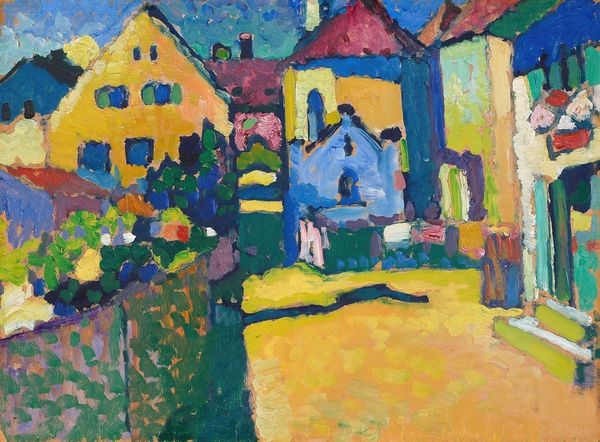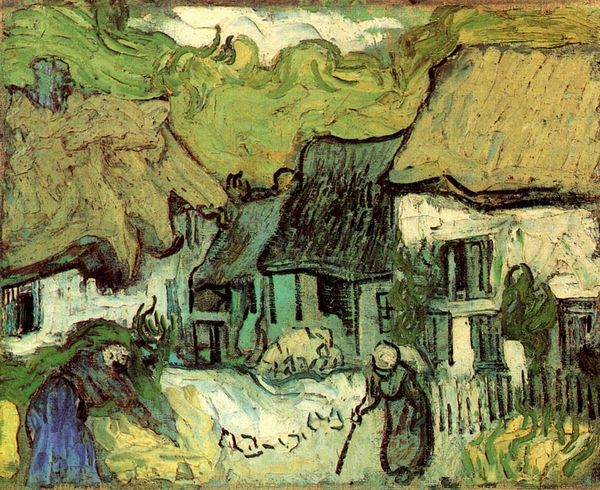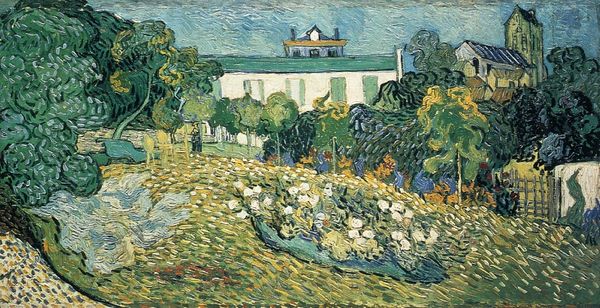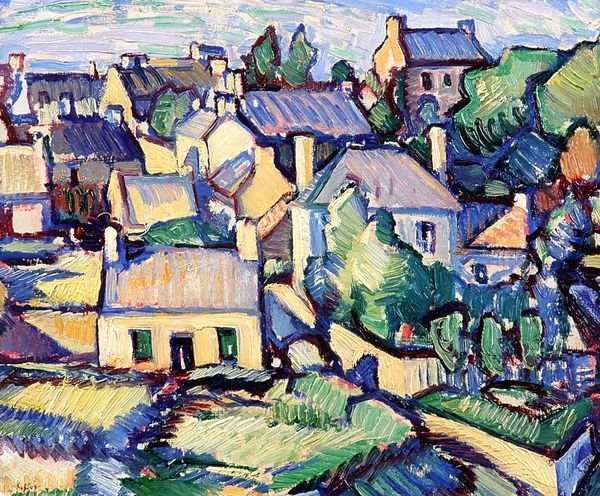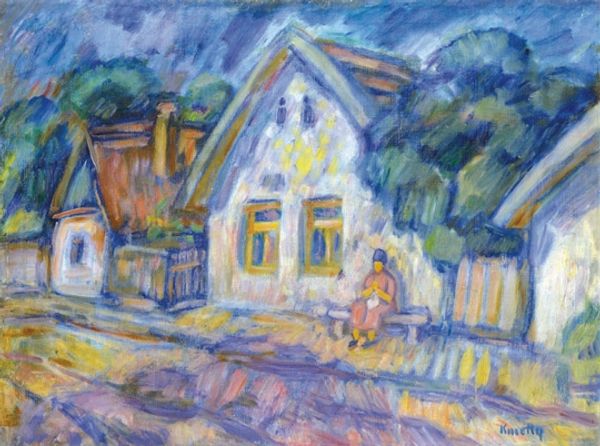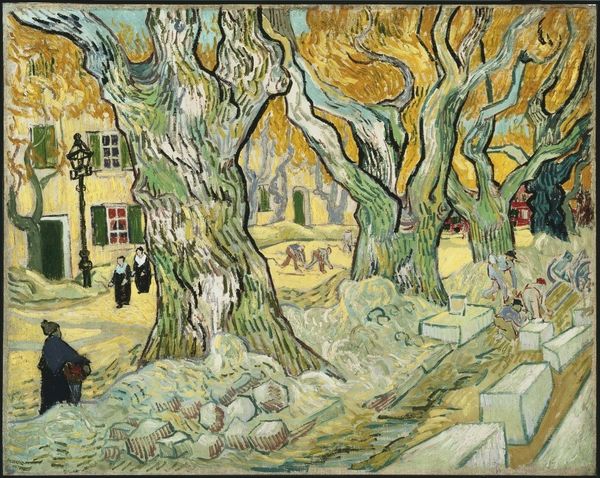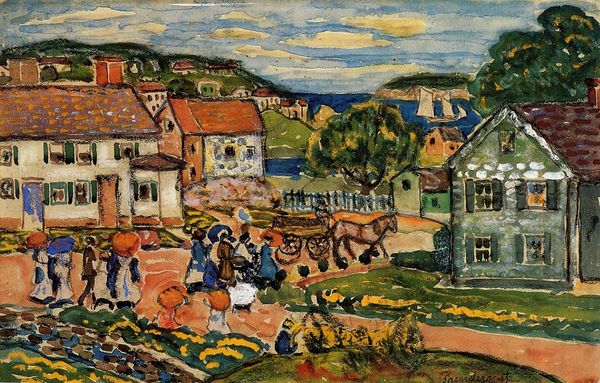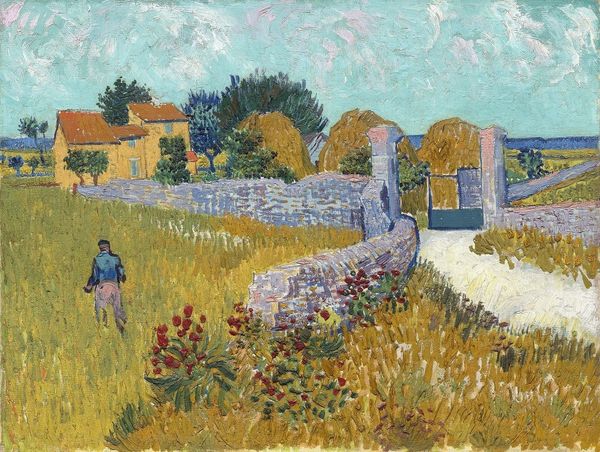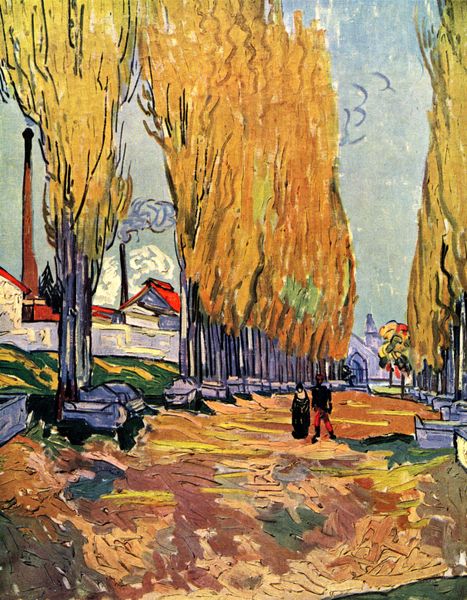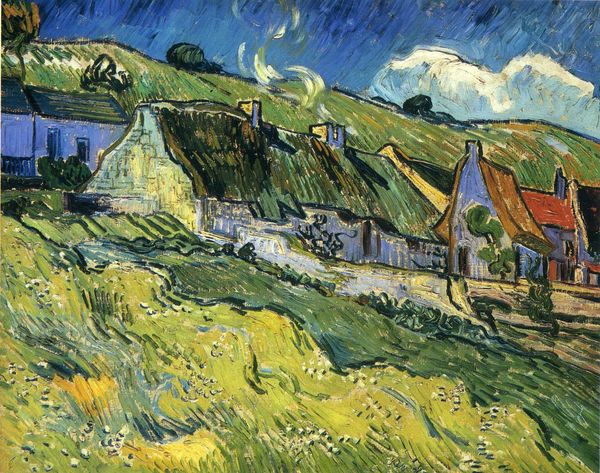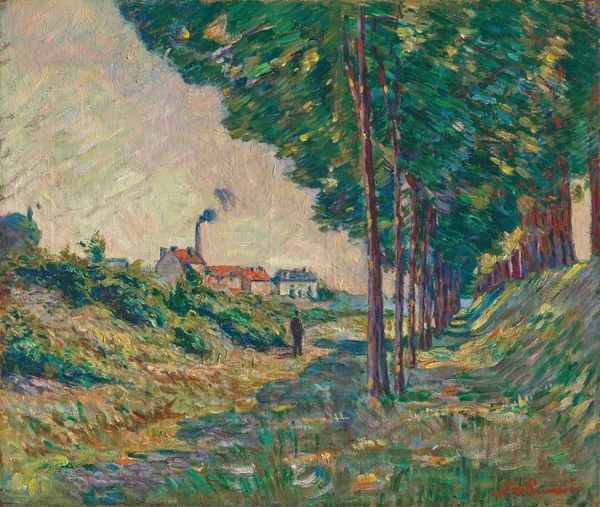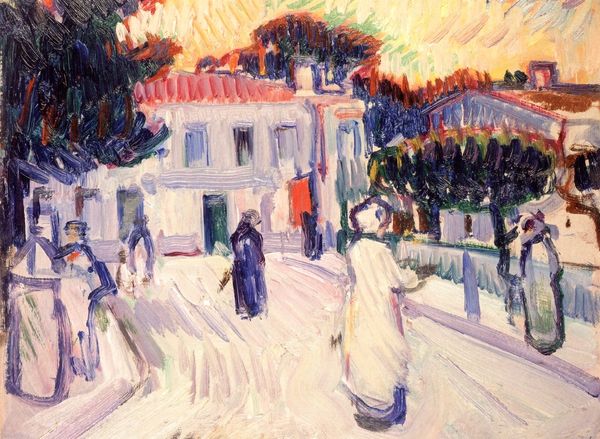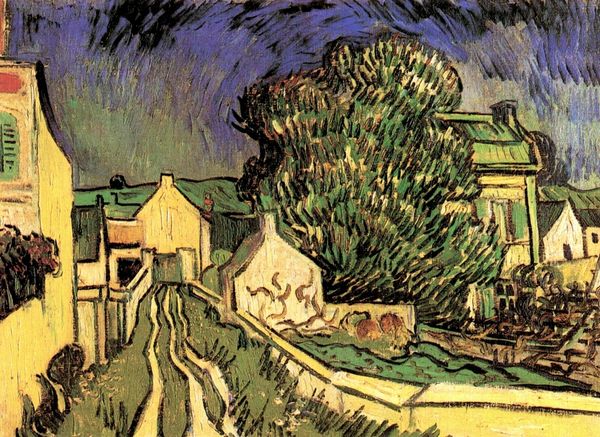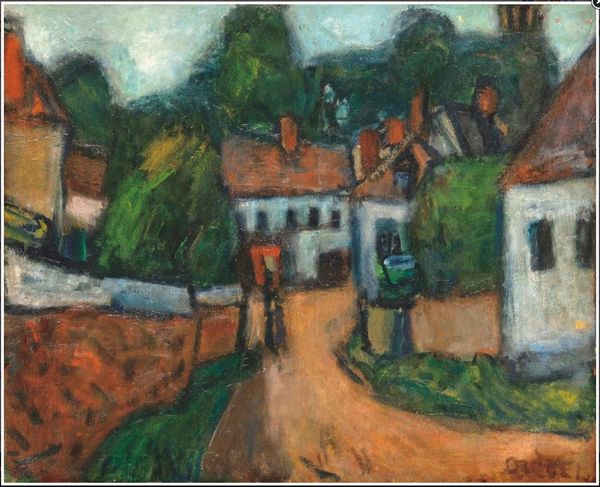
painting, oil-paint
#
painting
#
oil-paint
#
landscape
#
impressionist landscape
#
handmade artwork painting
#
expressionism
#
naive art
#
genre-painting
#
post-impressionism
#
expressionist
Copyright: Public Domain: Artvee
Vincent van Gogh made this oil painting, Stairway at Auvers, in France near the end of his life. The steep, winding path suggests the uphill struggle of daily life, an idea common in the Realist art movement of 19th century France. Painted in the summer of 1890, the image shows a steep staircase winding upwards, flanked by lush greenery and leading to a building at the top. Van Gogh’s expressive brushstrokes and bold use of color, like the almost vibrating green, intensify the scene. We can speculate that the women ascending the stairs are working class inhabitants of Auvers, a rural community. Here, Van Gogh creates meaning through his choice of subject matter. To understand Van Gogh’s work fully, we need to delve into the art criticism of his time, as well as the social and cultural conditions that influenced his artistic vision. By examining letters, reviews, and historical records, we can gain insights into the complex relationship between art, society, and individual expression.
Comments
No comments
Be the first to comment and join the conversation on the ultimate creative platform.
